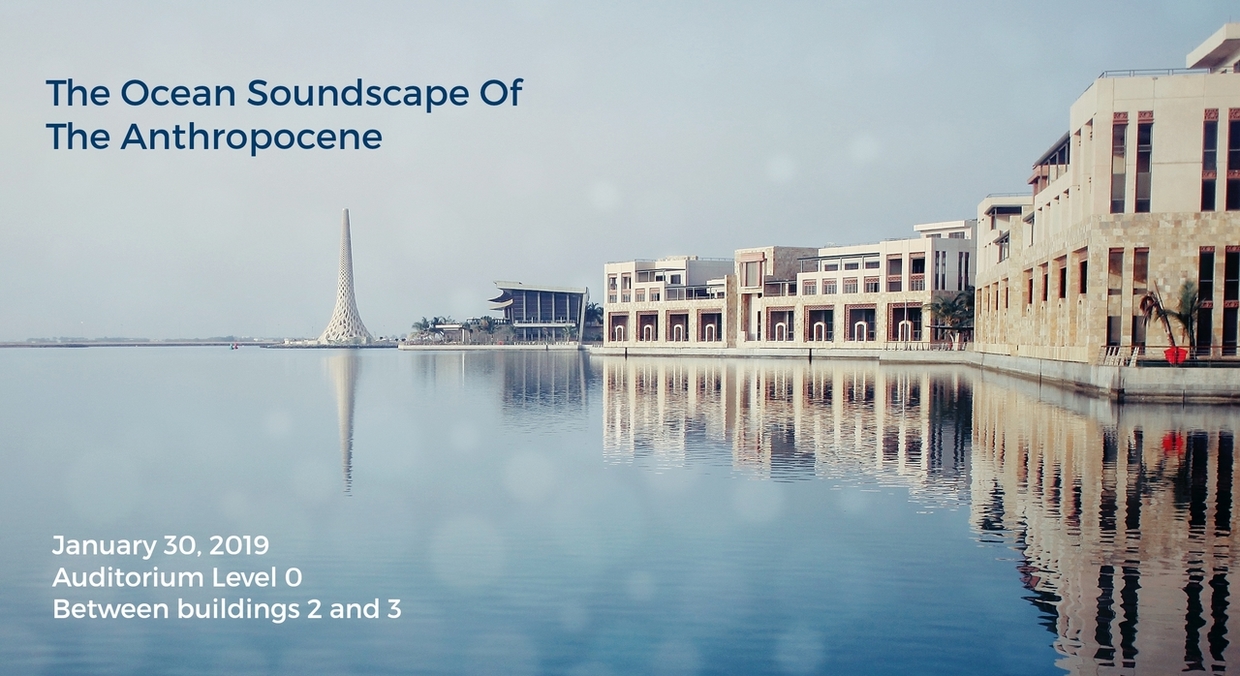
January 30, 2019
Auditorium 215 (between bldg. 2-3, level 0)
The underwater ocean soundscape is a critical but understudied habitat feature directly affecting marine animals that rely on sound. However, with increasing human activity the ocean has become noisier. This is especially true with the advent of submarine construction and seismic exploration, and the ever-increasing noise produced by shipping and other human activities. Noise travels much further through water than air and thus has the capacity to have more widespread effects on marine life, especially those that have evolved to use sound to communicate, locate prey and habitats, and detect risks.
In this workshop, we will bring together researchers measuring, describing, and comparing soundscapes in marine ecosystems across the world.
The speakers will address questions such as: How have soundscapes changed in the Anthropocene, particularly the role of the anthrophony? Is the biophony, and thus most animal communication, potentially masked by anthropogenic noise? Are there spatial (tropical vs temperate vs polar, freshwater vs marine, coastal vs offshore) and temporal (diel, seasonal) differences in the dominance of noise? Is acoustic complexity related to marine biodiversity? What can we learn from relatively undisturbed ecosystems about the effects of noise, and are there conservation strategies to mitigate such negative effects?
To see the agenda, click here.
This workshop is chaired by Prof. Carlos Duarte, Tarek Ahmed Juffali Research Chair in Red Sea Ecology, Red Sea Research Center, KAUST and co-chaired by Francis Juanes, Liber Ero Professor of Fisheries, University of Victoria.


1 comment
Stellar programme by Professor Duarte, as always: inspirational, exciting and thought-provoking.
The workshop was extremely well run: the format/pace, range and scope of topics offered cutting-edge scholarly – yet accessible to a lay audience – knowledge. As a non-scientist, I am thankful for those opportunities and truly appreciate Professor Duarte’s educational outreach and interdisciplinary approaches.